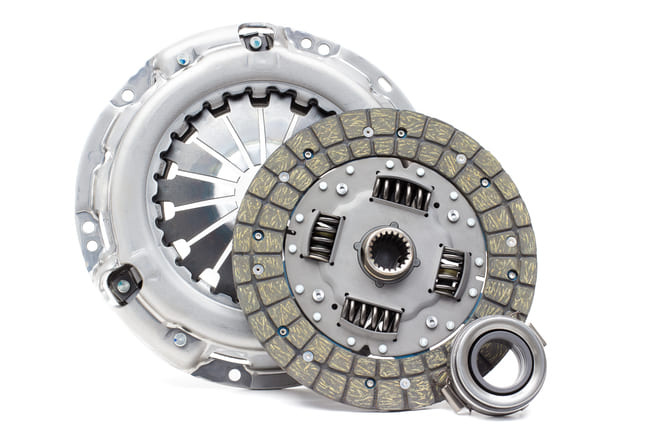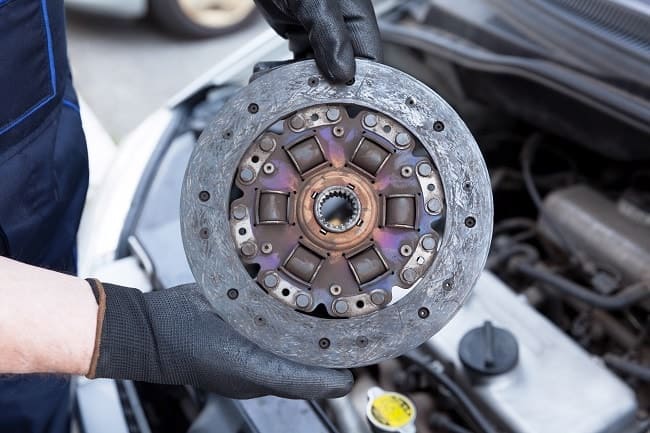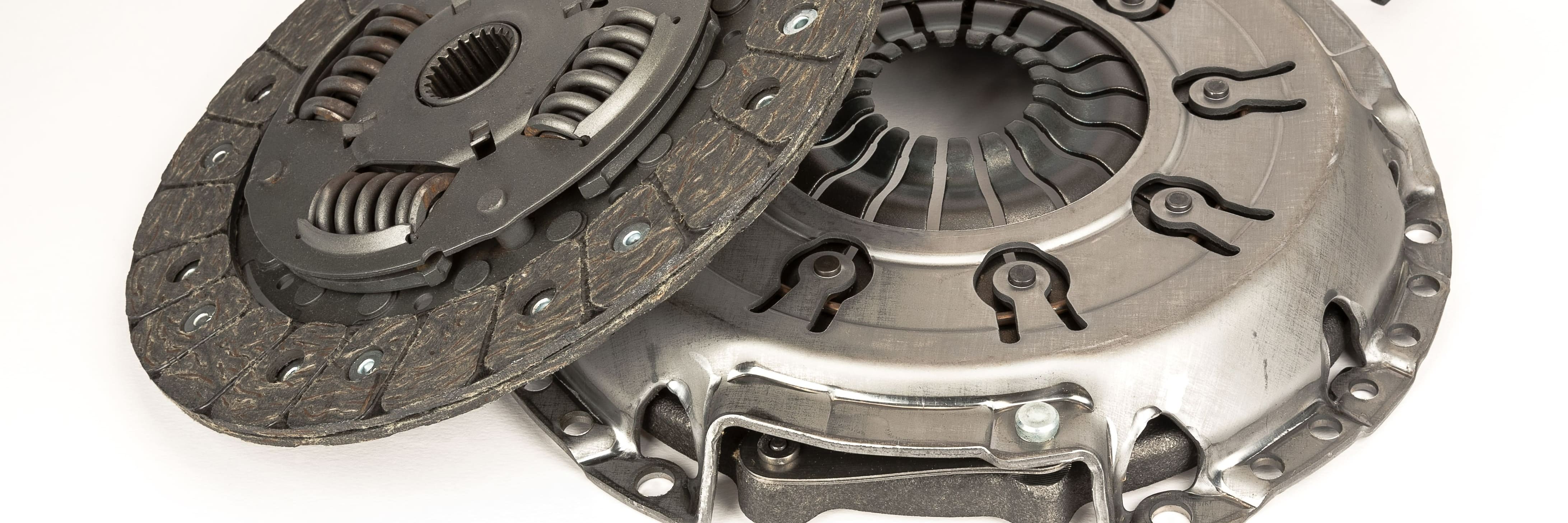Manual clutches have a reputation for being among the most expensive parts to repair and replace. Knowing the importance of these components, the smallest signs of clutch problems are enough to fill car owners with dread. However, there are ways to simplify and reduce repair costs. This guide will inform you on when to replace the parts and what to expect when you pay for a replacement in the UK.

Why is the clutch important?
From the moment you switch the engine on, it is constantly rotating and generating energy. This means that if you want to stop the wheels from moving or slow them down while it is running, there has to be a way to disconnect them from the motor without causing damage. The clutch is the magical mechanism that makes this possible. It enables you to connect and disconnect the transmission and wheels from the engine in order to seamlessly shift gears without stalling the car.
How does the clutch work?
The operating principles of different clutch systems are quite similar, but this article will look at the most common one for manual vehicles: the single plate friction system. It operates using three main components: the car flywheel, the clutch plate (aka friction disc), and the car pressure plate.
When your foot is off the clutch pedal, this means that the clutch is engaged, so the engine and transmission are connected and rotating at the same rate. This connection is established when the pressure plate applies force to the clutch plate, pressing it against the flywheel. It generates friction, which allows the components to transfer engine power to the gearbox. When you press the pedal, the components are disengaged by releasing the pressure applied to the clutch plate.
Signs the clutch is failing
- A burning smell
A worn or damaged clutch can generate an excessive amount of heat and friction as the plates slide against each other. If it gets to this stage, you may smell something burning when engaging and disengaging the clutch.
- Difficulty shifting gears
Shifting between gears may become more difficult as the worn clutch struggles to disconnect and connect the flywheel to the car wheels. Moreover, when the cable or pressure plate goes bad, the transmission gears may slip, particularly during acceleration.
- A spongy, vibrating or sticking clutch pedal
If the pedal feels spongy or loose, there could be a problem with the release bearing or the mechanism’s spring. You should also check for any signs of leaks in the system. A vibrating or pulsating pedal could be caused by a faulty pressure plate, and sometimes the pedal can get stuck due to broken car clutch parts.
- The engine revs but acceleration is poor
This is a common sign of a slipping clutch. Acceleration problems can occur when the disc fails to engage the flywheel and, as a result, there is a loss of power to the wheels.
- A grumbling or squeaking sound when the pedal is pressed
This can be the result of pressure being applied to damaged components. It is best to get both the clutch and transmission inspected as soon as possible.
- A sudden loss of acceleration
If something upsets the connection established between the motor and transmission, the speed of the car may be inconsistent due to sudden losses of power.
While it may be tempting to ignore these symptoms, it is strongly advised that you get your clutch repaired as soon as possible before your car becomes undrivable. If you’re concerned about high repair costs, you may be able to reduce them by purchasing a cheap clutch kit and flywheel online.

How much does it cost to replace a clutch?
Nowadays, a clutch replacement can cost anywhere from £350 to £750 at a garage in the UK. The prices will vary depending on factors such as the vehicle make and model, the extent of the damage, the type of system, whether the cylinders need replacing, and where the repairs are carried out. Example: prices for a Ford Fiesta clutch average around £415 compared to £800 for a Mini Cabriolet.
Some parts of the mechanism are more expensive than others. For example, a new flywheel for car costs an average of around £400, whereas installing a new bearing and clutch plate will normally cost around £250. Replacing the components yourself may help to significantly reduce repair costs, provided that you do it properly.
How long does it take to change a clutch?
As a general rule, a replacement can take around 2 to 6 hours to complete, depending on the complexity of the vehicle and the experience of the person carrying out the work. For example, it may take longer if the mechanism is tricky to access on the specific vehicle model.
TOP products on the subject:







































